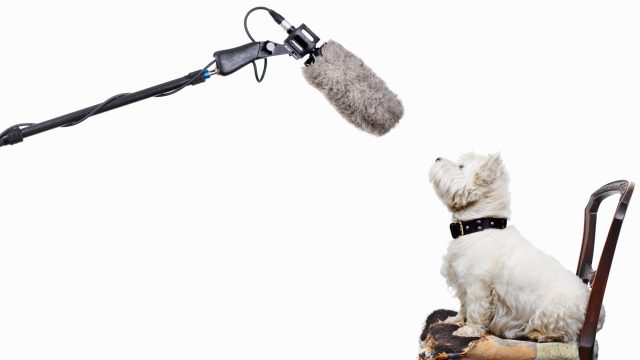
Artificial intelligence could transform humans’ understanding of the animal kingdom by allowing us to understand and potentially even communicate with other species, scientists say.
A string of research projects around the world are investigating how the same technology that powers ChatGPT could allow us to decode animal languages – a breakthrough that may be “shockingly close”, said Tim Newcomb in Popular Mechanics.
To what extend computers will help us “penetrate the secret world of animals” is “still unclear”, said the Financial Times. But “it could radically alter our perception of the billions of other creatures we share the planet with”, while also “raising thorny ethical questions”.
How can AI help us talk to animals?
California-based non-profit Earth Species Project (ESP) is leading the charge to decode non-human languages. The organisation “believes the non-stop advancements in artificial intelligence can help seal the deal – fast”, said Newcomb in Popular Mechanics.
ESP co-founder and CEO Katie Zacarian recently told the World Economic Forum (WEF) that humanity was “on the cusp of applying the advances we are seeing in the development of AI for human language to animal communication”.
ESP is tracking vocalisations of animals including birds, dolphins, primates, elephants and honeybees, in a bid to determine how those sounds relate to their behaviour.
The hope is that by identifying patterns in animal language, then analysing them using a form of AI called machine learning, it may be possible to decode other species’ communication.
ESP is making its findings publicly available so other scientists can contribute their own data and observations. Unlike many other researchers, however, the non-profit’s goal is to decode all animal languages, rather than just one.
“We’re species agnostic,” ESP co-founder Aza Raskin told The Guardian back in 2022. “The tools we develop… can work across all of biology, from worms to whales.”
Not everyone was convinced. Simply crunching data was no substitute for other kinds of research, argued Robert Seyfarth, a professor emeritus of psychology at University of Pennsylvania who has studied primate social behaviour and vocal communication for more than four decades.
“I just think these AI methods are insufficient,” Seyfarth told the paper. “You’ve got to go out there and watch the animals.”
What are the potential impacts of deciphering animal ‘talk’?
Unlocking the secrets of animal communications could have considerable “conservation value”, said The Guardian’s Zoë Corbyn. A 1970 album of whale song “galvanised the movement that led to commercial whaling being banned”, so who knows what a “Google Translate for the animal kingdom” could “spawn”.
Kay Firth-Butterfield, the WEF’s head of AI and machine learning, told Popular Mechanics that being able to understand what other animals say was “the first step to giving other species on the planet ‘a voice’ in conversations on our environment”.
“For example,” she added, “should whales be asked to dive out of the way of boats when this fundamentally changes their feeding or should boats change course?”
There are “other ethical questions” to consider, said the FT. “Who should be allowed to speak on behalf of humans? Who can be trusted to act in the animals’ best interests? What kinds of protections should be placed on the data to ensure it isn’t used against those interests – for hunting or poaching?”
Ethical questions aside, decoding animal vocalisations could clearly “aid conservation and welfare efforts”, said Scientific American. And it could also “have a startling impact on us”.
ESP’s Raskin told the magazine that the prospect of human-animal communication was comparable to the invention of the telescope.
“We looked out at the universe and discovered that Earth was not the centre,” Raskin said. “These tools are going to change the way that we see ourselves in relation to everything.”
Humans may be ‘shockingly close’ to being able to communicate with other species






